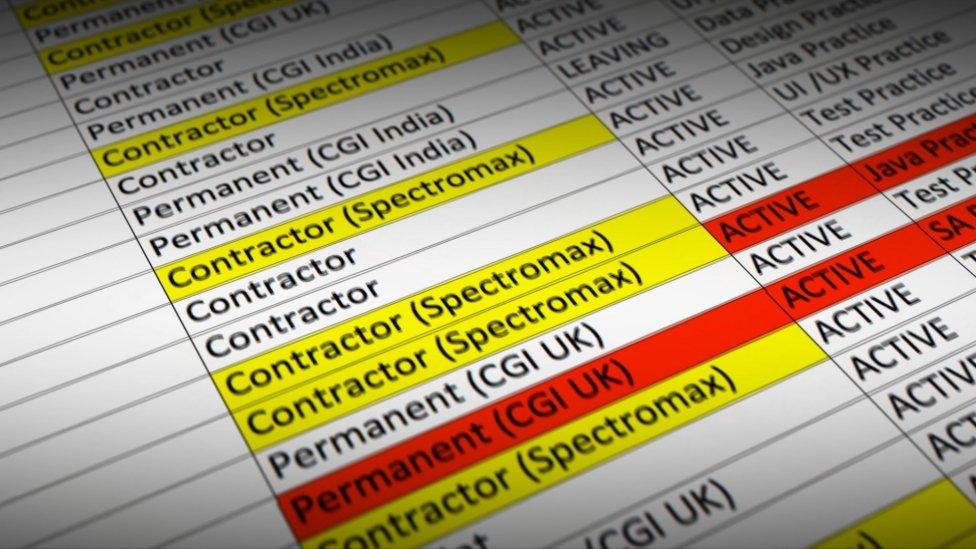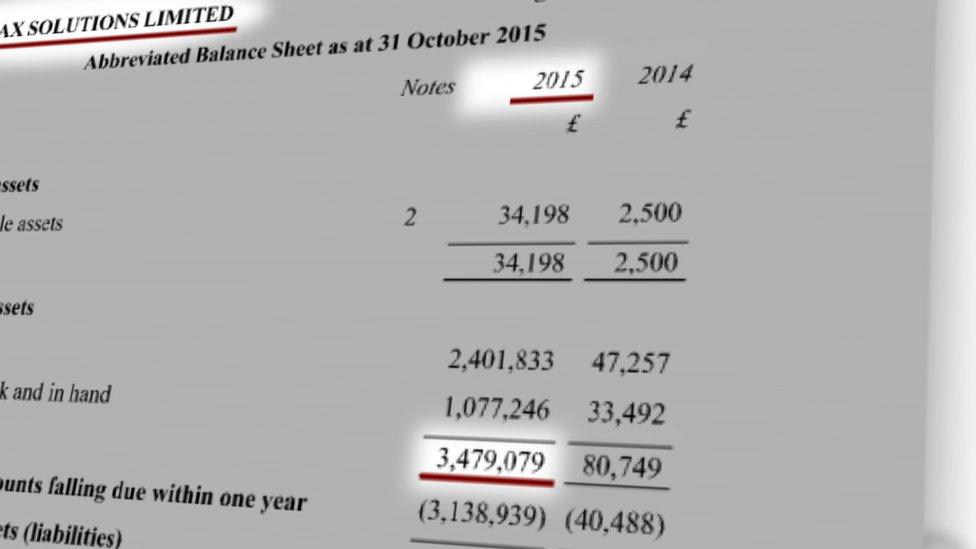Denial over Scottish government IT project 'conflict'
- Published

A former delivery director of a Scottish government IT project supplied dozens of contractors from his own company to work on the programme, a BBC Scotland investigation can reveal.
Dominic Prabhu's company Spectromax Solutions has seen its assets soar by about £3.4m in a year, the BBC found.
The project, to process subsidies for farmers, is already delayed and over budget by millions of pounds.
Dr Prabhu denied there was a conflict of interest.
He told BBC Scotland: "I am not the decision maker for such hiring. Governance processes within Scottish government do not allow individuals to make resourcing decisions."
The Scottish government said in a statement: "Spectromax is a supplier to CGI [the company delivering the project] and has no direct contractual relationship with the Scottish government.
"Partly in order to avoid any conflict of interest, our governance processes do not allow any individual to make resourcing decisions on their own."

Dr Prabhu told the BBC that there was "no relation" between his company's profit and the hiring of non-EU staff
The Scottish government is introducing the Common Agriculture Policy (CAP) futures programme to allow farmers to apply online for payments.
To make it happen, hundreds of IT contractors have been working on the project at two Scottish government buildings in Edinburgh.
But the total cost of this IT programme has ballooned from £102.5m to £178m, with spending on the IT delivery partner CGI more than double the original budget.
Audit Scotland is investigating the increased costs.
Former workers on the scheme have said UK contractors on the project were laid off - and within days, staff from overseas were taken on.
A BBC Scotland investigation, using Freedom of Information laws, has revealed that during a six-month period, the number of Indian workers on the programme rose, while the number of UK workers fell.
John Dunning worked as an IT contractor on the new computer system, but chose to leave. He told BBC Scotland that a few days after UK contractors were laid off, staff from overseas were appointed to the project.
"We were developing the system, and it was going well. We were doing some good work. But on that particular Friday, suddenly out of nowhere, 25 people were rolled off the project," he said.
"The Indian contractors were generally coming in at less than half the rate of UK workers."

Dr Prabhu's company Spectromax supplies the company that is delivering the IT contract to process farming subsidies
The BBC found that between October 2014 and the end of March 2015, the project's total workforce fell by 40. The number of UK contractors was reduced by 77, but the number of Indian contractors rose by 44.
It is possible for people from overseas to work in the UK. But immigration rules only make it possible if there is a shortage of workers from the UK and EU in that field - and if the roles have been advertised widely to European workers.
These rules are under review by the UK government, as part of efforts to curb immigration.
Dr Prabhu was appointed delivery director on this project in February 2015. He is also sole director of a UK-registered company called Spectromax Solutions Ltd.
BBC Scotland has seen documents which show Spectromax Solutions provided dozens of workers for the project, which meant Dr Prabhu's company has stood to gain financially from this arrangement.
Company accounts, filed last month, show that for Spectromax, business has indeed boomed between 2014 and 2015. The company's assets have soared in value, from around £81,000 in 2014, to about £3.5m in 2015.
A former IT contractor who resigned from the project, and who did not want to be identified, told the BBC: "The whole situation, to me, seems to be completely engineered.

"The Scottish government, I believe, are paying just short of a thousand pounds a day for some of the workers on the project. And the rates being offered to the contractors are significantly less than that.
"I could easily imagine it's £100 or more per day per worker. With 100 workers on the project, that's £10,000 a day, perhaps, going straight to Dominic from public money."
It is unclear how many contractors have been supplied to the project by Spectromax Solutions, or at what rates. BBC Scotland's requests for this information has been declined on the grounds of commercial confidentiality.
But the investigation found that by April 2015, about 52 contractors from Spectromax Solutions were working on the project.
Dr Prabhu told the BBC that there was "no relation" between his company's profit and the hiring of non-EU staff.
In a statement, he added: "My responsibility is to ensure that we have staff with the right skill set in the interest of the project... There is no conflict of interest."
The IT company CGI, who are in overall charge of delivering the computer system for the Scottish government, said: "As is the norm on large, complex assignments such as the AFRC Futures Programme, the resources provided by CGI have evolved over time to best meet the changing requirements and skills needed by the client.
"The current profile remains a mix of both EU and non-EU, permanent and contract staff - as it has been from the start of the programme back in March 2013."